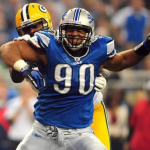“What was the score?”
The question cuts right to heart of how we judge successful teams and players. Our results-driven society places high value on the overall outcome, but there’s more to it than that isn’t there? That’s where the likability factor comes in.
Forbes magazine recently published its list of the most-disliked athletes in sports. According to Nielsen and E-Poll Market Research, Michael Vick and Tiger Woods are the most disliked. In fact, 60% of the respondents said they disliked both Vick and Woods.
Results Don’t Tell the Whole Story
Mike Vick
 Both have suffered from problems in their personal lives in recent years. Michael Vick served federal prison time for his role in a dog-fighting ring. But since his return to the NFL, Vick has put up some of the best numbers of his career. He’s thrown for thrown for more than 3,000 yards the last two seasons for the first time in his career. In 2010, he set a career high for touchdown passes thrown in a season. The stats show a successful quarterback, but the fans watching say something different. Vick’s likability will affect his long-term success because its more than just results.
Both have suffered from problems in their personal lives in recent years. Michael Vick served federal prison time for his role in a dog-fighting ring. But since his return to the NFL, Vick has put up some of the best numbers of his career. He’s thrown for thrown for more than 3,000 yards the last two seasons for the first time in his career. In 2010, he set a career high for touchdown passes thrown in a season. The stats show a successful quarterback, but the fans watching say something different. Vick’s likability will affect his long-term success because its more than just results.
Tiger Woods
 Tiger Woods is in a similar position. His martial troubles dominated tabloid headlines for two years. Now you’re more likely to see articles about his recent slump on the PGA Tour. Tiger hasn’t won a tournament on the Tour since September of 2009, but he still ranks third on the all-time list with 71 Tour wins. He’s won 14 major golf championships, second only to Jack Nicklaus, and was named PGA Player of the Year 10 times. His success is incredible, but it doesn’t mean people like him. That dislike will cost him success in other ways, like sponsorship opportunities.
Tiger Woods is in a similar position. His martial troubles dominated tabloid headlines for two years. Now you’re more likely to see articles about his recent slump on the PGA Tour. Tiger hasn’t won a tournament on the Tour since September of 2009, but he still ranks third on the all-time list with 71 Tour wins. He’s won 14 major golf championships, second only to Jack Nicklaus, and was named PGA Player of the Year 10 times. His success is incredible, but it doesn’t mean people like him. That dislike will cost him success in other ways, like sponsorship opportunities.
Woods and Vick represent two extreme cases dealing with highly sensitive issues, and in Vick’s case, a federal crime. It’s easy to see why they landed on the “Most Disliked List.”
Ndomukong Suh
 What about the player who ranks fourth on the list? Ndomukong Suh. The Detroit Lion’s defensive lineman hasn’t done anything to the level of Vick or Woods. Suh did, however, stomp on the face of a Packers lineman during a nationally televised game on Thanksgiving. He was fined and suspended as a result. Some would say that’s just what happens when intensity takes over in a game. Others would argue, it’s that type of mentality that makes Suh an effective player. But public opinion says otherwise. In addition, Suh was also named as the “Dirtiest Player in the NFL” by the players themselves. His likability factor has certainly taken a hit in the last 6 months.
What about the player who ranks fourth on the list? Ndomukong Suh. The Detroit Lion’s defensive lineman hasn’t done anything to the level of Vick or Woods. Suh did, however, stomp on the face of a Packers lineman during a nationally televised game on Thanksgiving. He was fined and suspended as a result. Some would say that’s just what happens when intensity takes over in a game. Others would argue, it’s that type of mentality that makes Suh an effective player. But public opinion says otherwise. In addition, Suh was also named as the “Dirtiest Player in the NFL” by the players themselves. His likability factor has certainly taken a hit in the last 6 months.
And this is where everyone who has a job walks a fine line. Being known as a hard worker who gets the job done is one thing, but the way you go about doing it is just as important as the results you produce.
The Long Term Impact of Likability
Cris Carter
 There’s talk among NFL circles that former NFL receiver Cris Carter, could be dealing with the likability factor. Carter played 16 seasons in the NFL. He tallied 1,101 receptions for 13,899 yards and 130 touchdowns. Those numbers make Carter worthy of consideration to the Hall of Fame, but the voters are standing in his way. There are reports that personal bias and dislike based on the way Carter treated the media while he was a player, is impacting the voters. There’s not much room for error in the matter. With only 44 voters and 80 percent of the votes needed to for a candidate to gain entry, that means just 8 “no” votes can keep a player out.
There’s talk among NFL circles that former NFL receiver Cris Carter, could be dealing with the likability factor. Carter played 16 seasons in the NFL. He tallied 1,101 receptions for 13,899 yards and 130 touchdowns. Those numbers make Carter worthy of consideration to the Hall of Fame, but the voters are standing in his way. There are reports that personal bias and dislike based on the way Carter treated the media while he was a player, is impacting the voters. There’s not much room for error in the matter. With only 44 voters and 80 percent of the votes needed to for a candidate to gain entry, that means just 8 “no” votes can keep a player out.
It’s not fair, you say? Maybe not, but it’s difficult to remove human bias and focus solely on the numbers. The likability factor comes into play whether on purpose or simply as a passing thought.
That brings us back to Suh. He doesn’t seem concerned about the growing dislike around him, but what happens later in his career? How will his likability factor come into play? Will it negate some of the great things he’s done or prevent him from opportunities he’d like to have?
Now let’s look at what this means for you. There’s a perception in many workplaces that it doesn’t matter how you get the job done, as long as you get it done. Some managers will say, “I don’t care if my employees like me, I just need them to get the job done.” Maybe you know of a co-worker who follows a similar strategy. “I don’t care if tick off a few people, at least I’m getting my job done. It’s their problem if they don’t like me.”
It’s easy to think that, but it will become your problem later on down the line. People don’t want to work with jerks. They don’t want to see good things happen to jerks at work, which means you won’t get their best effort. That manager might think he/she is laying down the law and running a tight ship, but there’s a good chance, they’re sabotaging themselves and the success of their department. The co-worker who doesn’t care about their likability just created more work for themselves because no one wants to work alongside of them that upcoming project.
In both these cases, reducing your likability limits your appeal. Long-term success depends on your appeal to the largest group possible. You can put up great numbers like Michael Vick, Tiger Woods and Cris Carter, but if you fail to increase your likability your opportunities will be limited.
How to Increase Your Likability Factor
It’s important to note that increasing your likability doesn’t mean you become “soft” or allow yourself to be a pushover. It means that you take the time to be genuine and cultivate real connections and relationships. Don’t know where to start? Try these 3 things.
- Look up from your keyboard. When someone approaches your desk, make eye contact instead of trying to multitask and send emails while carrying on a conversation.
- Engage in small talk. Spend a few minutes a day talking about something other than work, so you can relate to your colleagues on a different level.
- Smile. Yes, the workday can get stressful, but people appreciate the colleague who offers an encouraging smile, throughout the day.
Do you have any ideas to increase your likability factor in the workplace? Please leave your comments below or tweet us!


このドメインは、訪問者の多くを受け取るように思われます。あなたはそれをどのように宣伝していますか?それは物事の素敵な個々のスピンを提供しています。私は約投稿するのに有用な、または実質的な何かを持つことが最も重要なことだと思います。
キリン 本搾り レモン 500ml×24本 【ご注文は2ケースまで同梱可能です】:リカーBOSS 楽天市場店 http://sweetpotatojam.jp/zbxx8/707.html
I really like it whenever people come together and share thoughts. Great website, continue the good work!
Hello, I enjoy reading through your post. I like to write a little comment to support you.
I am regular visitor, how are you everybody? This paragraph posted at this site is actually fastidious.
I am regular reader, how are you everybody? This post posted at this web site is really fastidious.
This type of toys are naturally toys, yyet at the very saqme time they apear to have something
mysterious, when permit you to make things go oon the ground or fly airborne by pressing the magic push-button control button.
Das Thema ist Sex.
Beheiztes Druckbett ich auch verwenden.
Darüber hinaus bekommst du regelmässig einen Newsletter mit geilen Amateuren aus deiner Stadt oder deiner Region die einen Sexkontakt suchen.
pod trash removal
over here http://www.dumpsterrentalslosangeles.com/sitemap113.php
Nicht nur das es dort kaum spezielle Clubs oder Treffpunkte für sie gibt, nein, hier haben sie meist mit noch viel mehr Vorurteilen und schrägen Blicken als der Stadt zu rechnen.
Und da haben wir schon das Probelm.